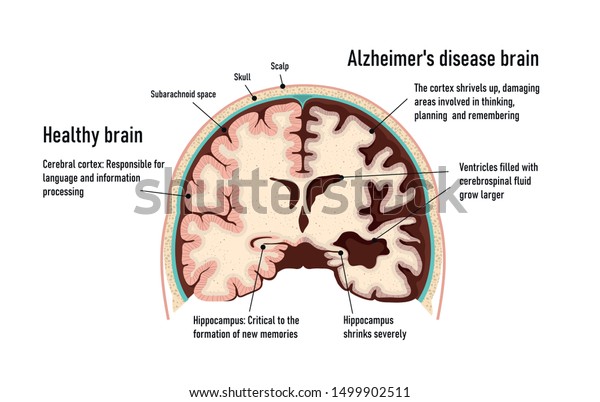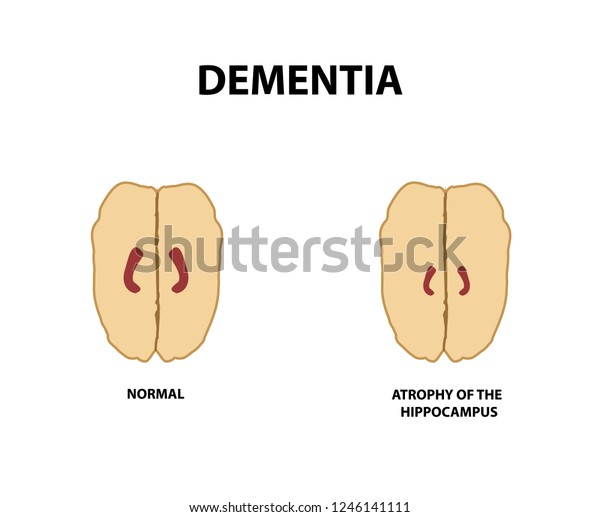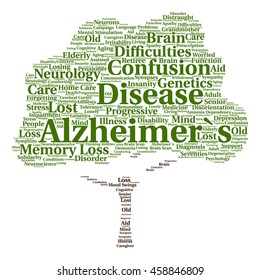Alzheimer’s is an irreversible disease. It is progressive brain disorder that slowly destroys the memory and thinking skills of a person and, eventually, the ability to carry out the simplest tasks. In most people with the disease, those who are in the late-onset type, the symptoms first appear in their mid-60s. Early-onset Alzheimer’s occurs between a person’s 30s and mid-60s and it occurs very rare. Alzheimer’s disease is the most common cause of dementia among older adults.

How to improve memory?
Everyone has moments of forgetfulness from time to time, especially when life gets busy.
While this can be a completely normal occurrence, having a poor memory can be frustrating.
Genetics plays a role in memory loss, especially in serious neurological conditions like Alzheimer’s disease. However, research has shown that diet and lifestyle have a major impact on memory too.
Here are some evidence-based ways to improve your memory naturally.
-
Eat Less Added Sugar.
-
Try a Fish Oil Supplement
-
Make Time for Meditation
-
Maintain a Healthy Weight
-
Get Enough Sleep
-
Practice Mindfulness
How did this Disease get its name?
The Alzheimer’s disease is named after Dr. Alois Alzheimer. In 1906, Dr. Alzheimer noticed changes in the brain tissue of a woman who had died of an unusual mental illness. Her symptoms included memory loss, language problems, and unpredictable behavior. After her death, he examined her brain and found many abnormal clumps. These clumps are now called amyloid plaques and tangled bundles of fibers, now called neurofibrillary, or tau, tangles.
Amyloid plaques and tangles in the brain are still considered some of the main Characteristics of Alzheimer’s disease. Another feature is the loss of connections between nerve cells in the brain. Neurons are the cells that transmit messages between different parts of the brain, and from the brain to muscles and organs in the body. Many other complex brain changes are also thought to play a role in Alzheimer’s.
How this damage appears?
Initially, this damage appears to take place in the hippocampus. Hippocampus is the part of the brain essential in forming memories. When neurons die, additional parts of the brain are also affected. By the final stage of Alzheimer’s, damage is widespread, and brain tissue has shrunk significantly.

Overview of Dementia
In dementia, we describe a group of symptoms affecting memory, thinking and social abilities severely enough to interfere with our daily life. It is not a specific disease, but several different diseases may cause dementia.
As dementia generally involves memory loss, memory loss has different causes. Having memory loss alone does not mean that a person has dementia.
Alzheimer’s disease is the most common cause of a progressive dementia in older adults, but there are a number of causes of dementia. Depending on the cause, some dementia symptoms may be reversible.
Types Of Alzheimer’s Disease
Almost everyone who are suffering from Alzheimer’s disease will eventually have the same symptoms memory loss, confusion, trouble with once-familiar tasks, and making decisions. All forms of Alzheimer’s appear to share overproduction and/or decreased clearance of a type of protein called amyloid beta peptides. Though the effects of the disease are similar, there are two main types.
1. Early-onset Alzheimer’s. This type happens to people who are younger than age 65. Often, they are in their 40s or 50s when they are diagnosed with the disease. It is rare up to 5% of all people with Alzheimer’s have early-onset. People with Down syndrome have a higher risk for it.
Scientists have found a few ways in which early-onset Alzheimer’s is different from other types of the disease. People who have it tend to have more of the brain changes that are linked with Alzheimer’s. The early-onset form also appears to be linked with a defect in a specific part of a person’s DNA, chromosome 14. A form of muscle twitching and spasm, called myoclonus, is also more common in early-onset Alzheimer’s.

What are the symptoms of early onset Alzheimer’s disease?
Alzheimer’s Disease is the most common form of dementia. Dementia is a general term for the loss of memory functions or other mental abilities that affect your daily life.
Following are the symptoms of early onset of Alzheimer’s disease:
- Memory loss
In memory loss, you or a loved one may begin to appear more forgetful than normal.
in this, you start forgetting important dates or events can occur.
If questions become repetitive and frequent reminders are required than a person should see his doctor.
- Difficulty in planning and problem solving
Alzheimer’s Disease can become more apparent if a person or a loved one has difficulty developing and following a plan of action. Working with numbers can also become difficult.
This can often be seen when you or a family member begins to show problems maintaining monthly bills or a checkbook.
- Difficulty in completing familiar tasks
Some people may experience a greater problem with concentration. Routine daily tasks requiring critical thought may take longer as the disease progresses.
The ability to drive safely may also be called into question. If you or a loved one gets lost while driving a commonly traveled route, this may be a symptom of Alzheimer’s Disease.
- Difficulty in determining time or place
Losing track of dates and misunderstanding the passage of time as it occurs are also two common symptoms. Planning for future events can become difficult since they aren’t immediately occurring.
As symptoms progress, people with Alzheimer’s Disease can become increasingly forgetful about where they are, how they got there, or why they are there.
- Vision loss
Vision problems can also occur in Alzheimer’s Disease. This may be as simple as an increased difficulty in reading.
You or a loved one may also begin to have problems judging distance and determining contrast or color when driving.
- Difficulty in finding the right words
It may appear difficult in initiating or joining on conversation. Conversations may randomly be paused in the middle, as you or a loved one may forget how to finish a sentence.
Because of this, repetitive conversations may occur. A person may have difficulty finding the right words for specific items.
- Misplacing items often
You or a loved one may start putting items in unusual places. It may become more difficult to retrace your steps to find any lost items. This may lead you or a loved one to think that others are stealing.
- Difficulty in making decisions
Financial choices may show poor judgment. This symptom often causes poor financial effects. An example of this is donating large amounts of money to telemarketers.
Physical hygiene also becomes less of a concern. You or a loved one may experience a rapid decline in bathing frequency and a lack of willingness to change clothing on a daily basis.
- Withdrawing from work and social events
As symptoms appear, you may notice that you or a loved one becomes increasingly withdrawn from common social events, work projects, or hobbies that were previously important. Avoidance can increase as symptoms worsen.
- Experiencing personality and mood changes
Extreme swings in mood and personality may occur. A noticeable change in moods may include:
- confusion
- depression
- anxiety
- fearfulness
You may notice that you or your loved one is increasingly irritated when something outside a normal routine takes place.
Risk factors
-
Although Alzheimer’s Disease is not an expected part of advancing age, you are at increased risk as you get older. More than 30 percent of people over age 85 have Alzheimer’s.
-
You may also have an increased risk of developing Alzheimer’s Disease if a parent, sibling, or child has the disease. If more than one family member has Alzheimer’s Disease, your risk increases.
-
The exact cause of early onset Alzheimer’s Disease has not been fully determined. Many researchers believe that this disease develops as the result of multiple factors rather than one specific cause.
Summary
Researchers have discovered rare genes that may directly cause or contribute to Alzheimer’s Disease. These genes may be carried from one generation to the next within a family. Carrying this gene can result in adults younger than age 65 developing symptoms much earlier than expected.
2. Late-onset Alzheimer’s. This is the most common form of the disease, which happens to people age 65 and older. It may or may not run in families. So far, researchers haven’t found a particular gene that causes it. No one knows for sure why some people get it and others don’t.
Symptoms of Late-Onset Alzheimer’s Disease
Symptoms regarding one’s memory tend to be the first area of concern. Each case is unique, so symptoms vary from person-to-person. Some first develop symptoms such as a lack of judgment or issues regarding reasoning within the earliest stages.
Before individuals reach the more moderate and severe stages, symptoms are typically recognized when there’s mild cognitive impairment. You may notice that you or your loved one are becoming increasingly confused and can no longer perform regular daily tasks, such as following a recipe. Perhaps you were driving in a familiar area and you suddenly didn’t know where you were. Changes in personality and behavior can develop within the mild stages as well.
When Alzheimer’s develops into more moderate symptoms, reasoning, memory, and language worsen. Individuals may forget family members and can even hallucinate. Tasks such as getting dressed and adjusting to new situations can also be a challenge. Once again, this will depend on the individual themselves. Once the disease is more severe, the brain actually physically shrinks. At this point, individuals will be completely dependent on others.
Familial Alzheimer’s disease (FAD) is a form of Alzheimer’s disease that doctors know for certain is linked to genes. In families that are affected, members of at least two generations have had the disease. FAD makes up less than 1% of all cases of Alzheimer’s. Most people who have early onset Alzheimer’s have FAD.
What Does Alzheimer’s Disease Look Like?
Memory problems are typically one of the first signs of Alzheimer’s, though initial symptoms may vary from person to person. A decline in other aspects of thinking, such as finding the right words, vision/spatial issues, and impaired reasoning or judgment, may also signal the very early stages of Alzheimer’s disease. Mild cognitive impairment is a condition that can be an early sign of Alzheimer’s, but not everyone with mild cognitive impairment will develop the disease.
Summary
People with Alzheimer’s have trouble doing everyday things like driving a car, cooking a meal, or paying bills. They may ask the same questions over and over, get lost easily, lose things or put them in odd places, and find even simple things confusing. As the disease progresses, some people become worried, angry, or violent.
How Long Can a Person Live with Alzheimer’s Disease?
The time from diagnosis to death varies as little as 3 or 4 years if the person is older than 80 when diagnosed, to as long as 10 or more years if the person is younger.
Alzheimer’s disease is currently ranked as the sixth leading cause of death in the United States, but recent estimates indicate that the disorder may rank third, just behind heart disease and cancer, as a cause of death for older people.
Summary
Although treatment can help manage symptoms in some people, currently there is no cure for this devastating Alzheimer’s disease.
Causes of Alzheimer’s Disease
-
Alzheimer’s disease is thought to be caused by the abnormal build-up of proteins in and around brain cells.
-
One of the proteins involved is called amyloid, deposits of which form plaques around brain cells.
-
The other protein is called tau, deposits of which form tangles within brain cells.
-
As brain cells become affected, there’s also a decrease in chemical messengers called neurotransmitters involved in sending messages, or signals, between brain cells
-
Levels of one neurotransmitter, acetylcholine, are particularly low in the brains of people with Alzheimer’s disease.
-
Over time, different areas of the brain shrink. The first areas usually affected are responsible for memories.
-
In more unusual forms of Alzheimer’s disease, different areas of the brain are affected.
Summary
Although it is not known exactly what causes Alzheimer’s to begin, scientists now know that it begins many years before symptoms appear.
How is Alzheimer’s disease diagnosed?
Talk to your doctor if you or a loved one is finding it increasingly difficult to perform daily basis tasks, or if you or a loved one is experiencing increased memory loss. They may refer you to a doctor who specializes in Alzheimer’s Disease.
They will conduct a medical exam and a neurological exam to aid in the diagnosis. They may also choose to complete an imaging test of your brain. They can only make a diagnosis after the medical evaluation is completed.
Prevention
Alzheimer’s disease is not a preventable condition. However, a number of lifestyle risk factors for Alzheimer’s can be modified. Evidence suggests that changes in diet, exercise and habits steps to reduce the risk of cardiovascular disease may also lower your risk of developing Alzheimer’s disease and other disorders that cause dementia. Heart-healthy lifestyle choices that may reduce the risk of Alzheimer’s include the following:
- Exercise regularly
- Eat a diet of fresh produce, healthy oils and foods low in saturated fat
- Follow treatment guidelines to manage high blood pressure, diabetes and high cholesterol
- If you smoke, ask your doctor for help to quit smoking
Studies have shown that preserved thinking skills later in life and a reduced risk of Alzheimer’s disease are associated with participating in social events, reading, dancing, playing board games, creating art, playing an instrument, and other activities that require mental and social engagement.
Treatment for Alzheimer’s disease
There’s no cure for Alzheimer’s Disease at this time. The symptoms of Alzheimer’s Disease can sometimes be treated with medications meant to help improve memory loss or decrease sleeping difficulties.

Frequently asked questions
Following are the frequently asked questions related to Alzheimer’s disease.
- What can be the cause of Alzheimer’s disease?
Alzheimer’s disease is thought to be caused by the abnormal build-up of proteins in and around brain cells. One of the proteins involved is called amyloid, deposits of which form plaques around brain cells.
- What is Alzheimer’s disease in simple terms?
Alzheimer’s disease is an irreversible, progressive brain disorder that slowly destroys memory and thinking skills and, eventually, the ability to carry out the simplest tasks. In most people with the disease those with the late-onset type, symptoms first appear in their mid-60s.
-
What Are the 7 Stages of Alzheimer’s Disease?
-
Stage 1: No Impairment. During this stage, Alzheimer’s is not detectable and no memory problems or other symptoms of dementia are evident.
-
Stage 2: Very Mild Decline.
-
Stage: Mild *Decline.
-
Stage 4: Moderate Decline.
-
Stage 5: Moderately Severe Decline.
-
Stage 6: Severe Decline.
-
Stages 7: Very Severe Decline.
-
How does Alzheimer’s disease work?
Alzheimer’s disrupts processes vital to neurons and their networks, including communication, metabolism, and repair. At first, Alzheimer’s disease typically destroys neurons and their connections in parts of the brain involved in memory, including the entorhinal cortex and hippocampus.
- How do Alzheimer patients feel?
But emotional aspects of the disease may be just as important, especially to the friends and family who serve as caregivers. On the negative side, Alzheimer’s sufferers may have feelings of anger, anxiety, depression, fear, and loneliness.
Conclusion:
Basically, Alzheimer’s is a progressive disease, where the symptoms of dementia gradually worsen over a number of years. In its early stages, memory loss is mild, but with late-stage Alzheimer’s, individuals lose the ability to carry on a conversation and respond to their environment.
Related Searches